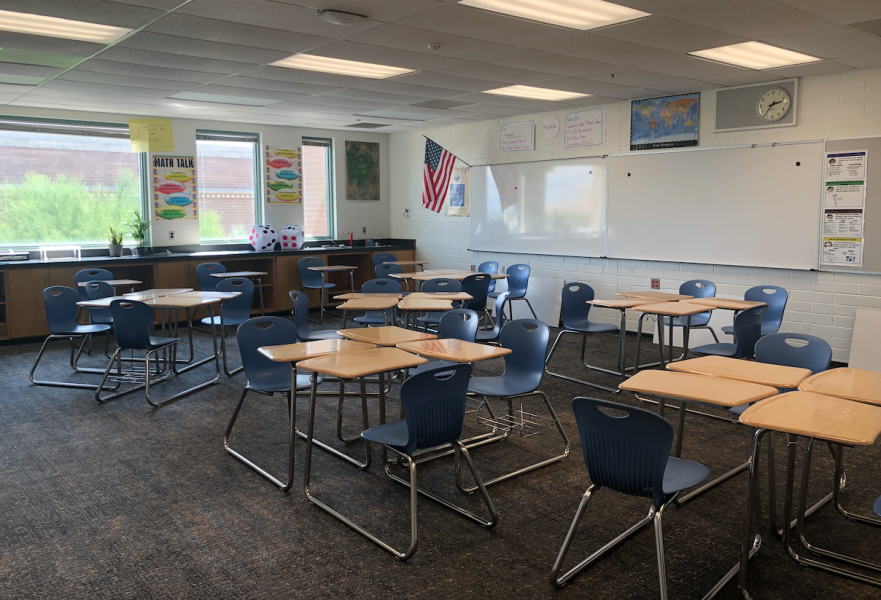Sunday, August 8, 2021, 6:35 AM
Tomorrow, Year 35 as a classroom teacher begins with a big change in my professional context. For the first time since Ronald Reagan was president and the Bangles walked like Egyptians (you’ve got watch this), I’ll be teaching at a high school instead of a middle school. As the ladies sing: Owayooo. I’m not even sure how much that long ago experience counts since it was student teaching for one semester and one semester as a substitute. Moreover, I’ll be teaching Algebra 2 and Honors Geometry – two subjects I’ve never taught.
Much of the district math team meets at the beginning of every summer for two weeks and at the end for one. During the first meetings we update our yearly plans and write our unit assessments and finals. In the week before school we write specific plans for the early weeks of the year, which focus on community building, norm establishment, and early material for the course. Through this early prep work, I’ve gotten to know my colleagues well, and become familiar with the high school’s policies.
Nonetheless, I expect the value of all that work will be surpassed by the experience of actual face to face teaching of different material (for me) to a different age group. In a couple of weeks I hope to have concrete answers to five specific questions:
1) What are high school students really like? The few I’ve met have been uniformly upbeat and friendly, which is a good sign. But those meetings have been in a casual setting. How will they be when stressed or confused by hard material in a large class. I also can’t help wondering what it will be like working with students who will almost all be taller than my statuesque 5’ 7”.
2a) How well will I teach? A colleague said something wise the other day – when someone complains, they’re often telling what they’re afraid of. So far, I don’t have any complaints, which, accordingly, suggests confidence. Still, as I work through the problems my students will be expected to solve, I get a fair number of them wrong the first couple of times I try. I think that’s a good thing because it reminds me that the material is difficult, and I need to be ready to explain everything two or three different ways. Plus, I can never say, “This is easy.” Still, how well will I do when it’s for real? And what will students’ complaints be telling me about their insecurities?
2b) How well will I teach? Successful teaching depends on so much more than what happens between the bells. Logistics, planning, room and material preparation, school policies, collaboration with colleagues, and the like, are huge parts of teaching well. Beyond that, and maybe most important, is the R word. Highly functioning Relationships with parents, colleagues, and students are the not so secret sauce to success, and must be well-developed. Expectations are sky high and teaching well will only follow good relationships.
3) How will tension over the pandemic, masks, and vaccinations play out? And what will be the carry-over from last year’s remote, hybrid, and in person schooling?
4) Finally, beyond the known unknowns, what unknown unknowns will reveal themselves and how will I address them?
By the time you read this, I will already be learning the answers to these questions. In two or three weeks, I hope to post what I’ve found out. Wish my students and me good luck and maybe say a prayer if you’re so inclined.









